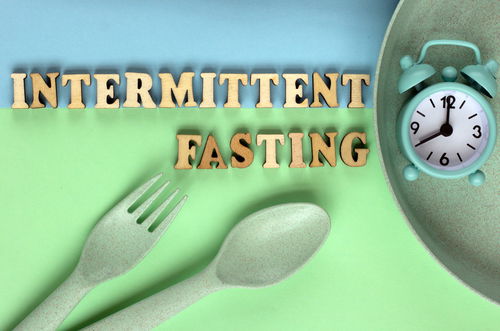Fasting Can Trigger Natural Cell Repair

Intermittent fasting can have a profound impact on your health. Physiologically, fasting has the potential to improve overall health and wellness. It triggers a repair response in cells and leads to positive changes in metabolism and body composition.
Many people turn to intermittent fasting for weight management or to address specific health conditions like irritable bowel syndrome or high cholesterol. However, it's important to note that intermittent fasting isn't suitable for everyone.
In today's world, with constant access to food, many people are faced with obesity and metabolic health challenges. A responsible approach to intermittent fasting provides a way to counteract these issues to regain control over your health.
Fasting is actually part of our genetic makeup. Early humans had to adapt to periods of no food availability, surviving on involuntary fasts for days or even weeks. So, it's not surprising that our bodies are well-equipped for fasting.
Find a Fasting Method That Suits You
Although intermittent fasting may seem complicated, it can actually simplify your day by reducing the need for meal planning. It doesn't usually require calorie counting, strict food restrictions, or macro tracking. Discussed below are some of the responsible fasting techniques used today, including:
ALTERNATE DAY FASTING: Studies suggest that alternate-day fasting may improve cardio-metabolic health, inflammation levels, and overall longevity. While it may be the most difficult fasting method to sustain, the concept is straightforward – simply fast one day, eat what you want the next day. Although you do not eat on fasting days, you can drink calorie-free beverages to keep you satisfied and well hydrated. If alternate-day fasting seems too restrictive, there are approaches that may be easier to sustain.
WHOLE DAY FASTING: Whole day fasting can be just that with 24 hours of not eating or a more flexible option involves following a two times a week method where calories are severely restricted during two non-consecutive days while eating normally during the five non-fasting days. But, remember that whole day fasting is not the most suitable option for everyone, so always listen to your body.
INTERMITTENT FASTING: The circadian rhythm approach to intermittent fasting limits food consumption to an eight-hour (16:8) to ten-hour (14:10) daytime period. During the fasting period, your body undergoes autophagy, a process that eliminates old or damaged cells to reduce inflammation. To break your fast, opt for a protein-packed salad, eggs with avocado, wholesome veggies, or a homemade protein shake.
Remember that it may take a few weeks for your body to adjust to your new eating and fasting schedule. So, don’t be surprised if you feel hungry or irritable. However, if you experience side effects, listen to your body and make responsible changes.
Responsible Fasting Can Actually Curb Appetite
For some people, sticking to an intermittent fasting routine is easier than monitoring calories intake each day. However, others may find it challenging, especially those with an unpredictable schedules who find it unsustainable in the long run. While intermittent fasting may initially cause hunger and frustration, many individuals adjust to this lifestyle and often prefer it to other methods of restricting calorie intake. But, stick with it and make adjustments as needed.
Fasting protocols are highly diverse and can be adapted to almost any lifestyle. In fact, some individuals even find enjoyment in continuing with a fasting lifestyle. Just remember that fasting initially curbs appetite but expect it to return once you stop. As your body adjusts to the fasting state, it will initially curb your appetite. However, once you stop fasting, your appetite may return, so beware if you are prone to overeating. It’s best to break a fast with healthy menu options.
Whether you’re interested in jump starting your journey using the latest compounded weight loss medication or would like to implement a responsible fasting method to shed pounds, Metabolic Research Center has over three decades of experiencing in helping clients meet their goal for healthy living.
By submitting this form, you agree to receive marketing text messages from us at the number provided, including messages sent by autodialer. Consent is not a condition of any purchase. Message and data rates may apply. Message frequency varies. Reply HELP for help or STOP to cancel. View our Privacy Policy and Terms of Service.

